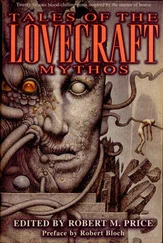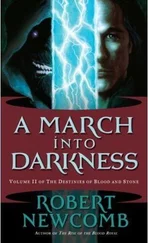Robert Pirsig - Lila. An Inquiry Into Morals
Здесь есть возможность читать онлайн «Robert Pirsig - Lila. An Inquiry Into Morals» весь текст электронной книги совершенно бесплатно (целиком полную версию без сокращений). В некоторых случаях можно слушать аудио, скачать через торрент в формате fb2 и присутствует краткое содержание. Жанр: Современная проза, на английском языке. Описание произведения, (предисловие) а так же отзывы посетителей доступны на портале библиотеки ЛибКат.
- Название:Lila. An Inquiry Into Morals
- Автор:
- Жанр:
- Год:неизвестен
- ISBN:нет данных
- Рейтинг книги:3 / 5. Голосов: 1
-
Избранное:Добавить в избранное
- Отзывы:
-
Ваша оценка:
- 60
- 1
- 2
- 3
- 4
- 5
Lila. An Inquiry Into Morals: краткое содержание, описание и аннотация
Предлагаем к чтению аннотацию, описание, краткое содержание или предисловие (зависит от того, что написал сам автор книги «Lila. An Inquiry Into Morals»). Если вы не нашли необходимую информацию о книге — напишите в комментариях, мы постараемся отыскать её.
Lila. An Inquiry Into Morals — читать онлайн бесплатно полную книгу (весь текст) целиком
Ниже представлен текст книги, разбитый по страницам. Система сохранения места последней прочитанной страницы, позволяет с удобством читать онлайн бесплатно книгу «Lila. An Inquiry Into Morals», без необходимости каждый раз заново искать на чём Вы остановились. Поставьте закладку, и сможете в любой момент перейти на страницу, на которой закончили чтение.
Интервал:
Закладка:
Sometimes people think there are some evil individual men somewhere who are exploiting them, some secret cabal of capitalists, or 400, or Wall Street bankers, or WASPs or name-any-minority group that gets together periodically and has secret conferences on how to exploit them personally. These men are supposed to be enemies of man. It gets confusing, but nobody seems to notice the confusion.
A metaphysics of substance makes us think that all evolution stops with the highest evolved substance, the physical body of man. It makes us think that cities and societies and thought structures are all subordinate creations of this physical body of man. But it’s as foolish to think of a city or a society as created by human bodies as it is to think of human bodies as a creation of the cells, or to think of cells as created by protein and DNA molecules, or to think of DNA as created by carbon and other inorganic atoms. If you follow that fallacy long enough you come out with the conclusion that individual electrons contain the intelligence needed to build New York City all by themselves. Absurd.
If it’s possible to imagine two red blood cells sitting side by side asking, Will there ever be a higher form of evolution than us? and looking around and seeing nothing, deciding there isn’t, then you can imagine the ridiculousness of two people walking down a street of Manhattan asking if there will ever be any form of evolution higher than man, meaning biological man.
Biological man doesn’t invent cities or societies any more than pigs and chickens invent the farmer that feeds them. The force of evolutionary creation isn’t contained by substance. Substance is just one kind of static pattern left behind by the creative force.
This city is another static pattern left behind by the creative force. It’s composed of substance but substance didn’t create it all by itself. Neither did a biological organism called man create it all by himself. This city is a higher pattern than either a substance or a biological pattern called man. Just as biology exploits substance for its own purposes, so does this social pattern called a city exploit biology for its own purposes. Just as a farmer raises cows for the sole purpose of devouring them, this pattern grows living human bodies for the sole purpose of devouring them. That is what the Giant really does. It converts accumulated biological energy into forms that serve itself.
When societies and cultures and cities are seen not as inventions of man but as higher organisms than biological man, the phenomena of war and genocide and all the other forms of human exploitation become more intelligible. Mankind has never been interested in getting itself killed. But the superorganism, the Giant, who is a pattern of values superimposed on top of biological human bodies, doesn’t mind losing a few bodies to protect his greater interests.
The Giant began to materialize out of Phædrus' Dynamic dreams when he was in college. A professor of chemistry had mentioned at his fraternity that a large chemical firm was offering excellent jobs for graduates of the school and almost every member of the fraternity thought it was wonderful news. The Second World War had just ended and good jobs were all that anyone seemed to think of. The revolution of the sixties was still twenty years off. No one had thought of making the film, The Graduate, back then.
Phædrus had always believed science is a search for truth. A real scientist is not supposed to sell out that goal to corporations who are searching for mere profit. Or, if he had to sell out in order to live that was nothing to be happy about. These fraternity brothers of his acted like they never heard of science as truth. Phædrus had suddenly seen a tentacle of the Giant reaching out and he was the only one who could see it.
So here was this Giant, this nameless, faceless system reaching for him, ready to devour him and digest him. It would use his energy to grow stronger and stronger throughout his life while he grew older and weaker until, when he was no longer of much use, it would excrete him and find another younger person full of energy to take his place and do the same thing all over again.
That was why he had run that day through all this traffic — through all these systems and sub-systems of the island. He was on his way to India, done with this corporate pseudo-science, still pursuing truth, knowing that to find it he would have to get free of the Giant first.
Here up in the sky above him right now were the heads of the corporation that had prompted the chemistry professor to make that talk to that fraternity so many years ago. This was the brain center of that corporate network, surrounded by other networks: financial networks, information networks, electronic transmission networks. That’s what all those tiny bodies were doing up there suspended so many hundreds of feet up in the sky. Participating in the Giant.
So Phædrus had been right in running then. But now — funny thought — this was actually his home. All his income came from here. His only fixed address now was right here — his publisher’s address on Madison Avenue. He was as much a part of the Giant as anyone else.
Once you understand something well enough, you don’t need to run from it. In recent years each time he’d returned to New York he could feel his fear of this old monster lessening, and a kind of familiar affection for it growing.
From a Metaphysics of Quality’s point of view this devouring of human bodies is a moral activity because it’s more moral for a social pattern to devour a biological pattern than for a biological pattern to devour a social pattern. A social pattern is a higher form of evolution. This city, in its endless devouring of human bodies, was creating something better than any biological organism could by itself achieve.
Well, of course! My God! Look at it! The power of this place! Fantastic! What individual work of art can come anywhere near to equaling it? Sure: dirty, noisy, rude, dangerous, expensive. Always has been and probably always will be. Always been a hell-hole if what you’re looking for is stability and serenity… But if you’re looking for stability and serenity, go to a cemetery, don’t come here! This is the most Dynamic place on earth!
Now Phædrus felt it all around him — the speed, the height, the crowds and their tension. All the early strangeness was gone now. He was in it.
He remembered that its great symbol used to be the ticker tape, ticking out unpredictable fortunes rising and falling every second, a great symbol of luck. Luck. When E. B. White wrote, If you want to live in New York you should be willing to be lucky, he meant not just lucky but willing to be lucky — that is, Dynamic. If you cling to some set static pattern, when opportunity comes you won’t take it. You have to hang loose, and when the time comes to be lucky, then be lucky: that’s Dynamic.
When they call it freedom, that’s not right. Freedom doesn’t mean anything. Freedom’s just an escape from something negative. The real reason it’s so hallowed is that when people talk about it they mean Dynamic Quality.
That’s what neither the socialists nor the capitalists ever got figured out. From a static point of view socialism is more moral than capitalism. It’s a higher form of evolution. It is an intellectually guided society, not just a society that is guided by mindless traditions. That’s what gives socialism its drive. But what the socialists left out and what has all but killed their whole undertaking is an absence of a concept of indefinite Dynamic Quality. You go to any socialist city and it’s always a dull place because there’s little Dynamic Quality.
Читать дальшеИнтервал:
Закладка:
Похожие книги на «Lila. An Inquiry Into Morals»
Представляем Вашему вниманию похожие книги на «Lila. An Inquiry Into Morals» списком для выбора. Мы отобрали схожую по названию и смыслу литературу в надежде предоставить читателям больше вариантов отыскать новые, интересные, ещё непрочитанные произведения.
Обсуждение, отзывы о книге «Lila. An Inquiry Into Morals» и просто собственные мнения читателей. Оставьте ваши комментарии, напишите, что Вы думаете о произведении, его смысле или главных героях. Укажите что конкретно понравилось, а что нет, и почему Вы так считаете.











